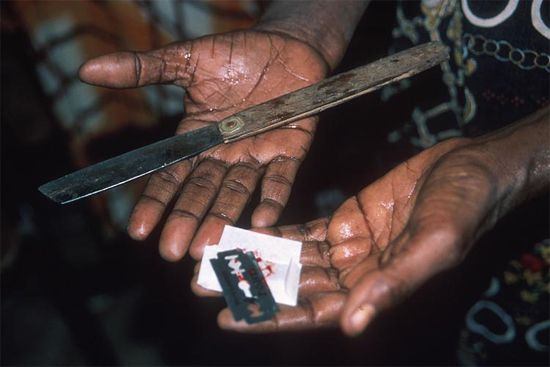UNFPA recognises Nigeria, Gambia banning female genital mutilation

The UN Fund for Population Activities, UNFPA, says Nigeria and The Gambia are among the countries that have outlawed the harmful practice of female genital mutilation.
The UNFPA, in a report on the of 2017 International Day of Zero Tolerance for Female Genital Mutilation, commemorated on February 6, stressed the urgent need to abandon the practice.
Female genital mutilation refers to all procedures involving partial or total removal of the external female genitalia or other injury the female genital organs for non-medical reasons and it is a deeply entrenched social and cultural norm in many societies.
“With the support of UNFPA and other UN agencies, many countries have passed legislation banning FGM – including, in 2015, Nigeria and The Gambia – and developed national policies to achieve its abandonment.”
“Girls aged 14 and younger represent about 44 million of those who have undergone female genital mutilation.
“Around the world, 200 million women and girls alive today have undergone some form of female genital mutilation.
“Female genital mutilation is a deeply entrenched cultural with devastating medical, social, emotional, legal and economic repercussions for young girls and women.
“Female genital mutilation is a violation of the human rights of women and girls, and a form of gender-based violence that must end now,” the UN population fund said.
UNFPA said the practice could cause short and long-term health complications, including chronic pain, infections, increased risk of HIV transmission, anxiety and depression, birth complications, infertility and, in the worst cases, death.
“It is internationally recognised as an extreme violation of the rights of women and girls.
“Female genital mutilation violates human rights principles and standards – including the principles of equality and non-discrimination on the basis of sex, the right to freedom from torture or cruel, inhuman or degrading punishment, the right to the highest attainable standard of health, the rights of the child, and the right to physical and mental integrity, and even the right to life.”
UNFPA, jointly with UNICEF, leads the largest global programme to accelerate the abandonment of female genital mutilation, it said.
Read more at http://www.premiumtimesng.com/news/more-news/222690-unfpa-recognises-nig...












